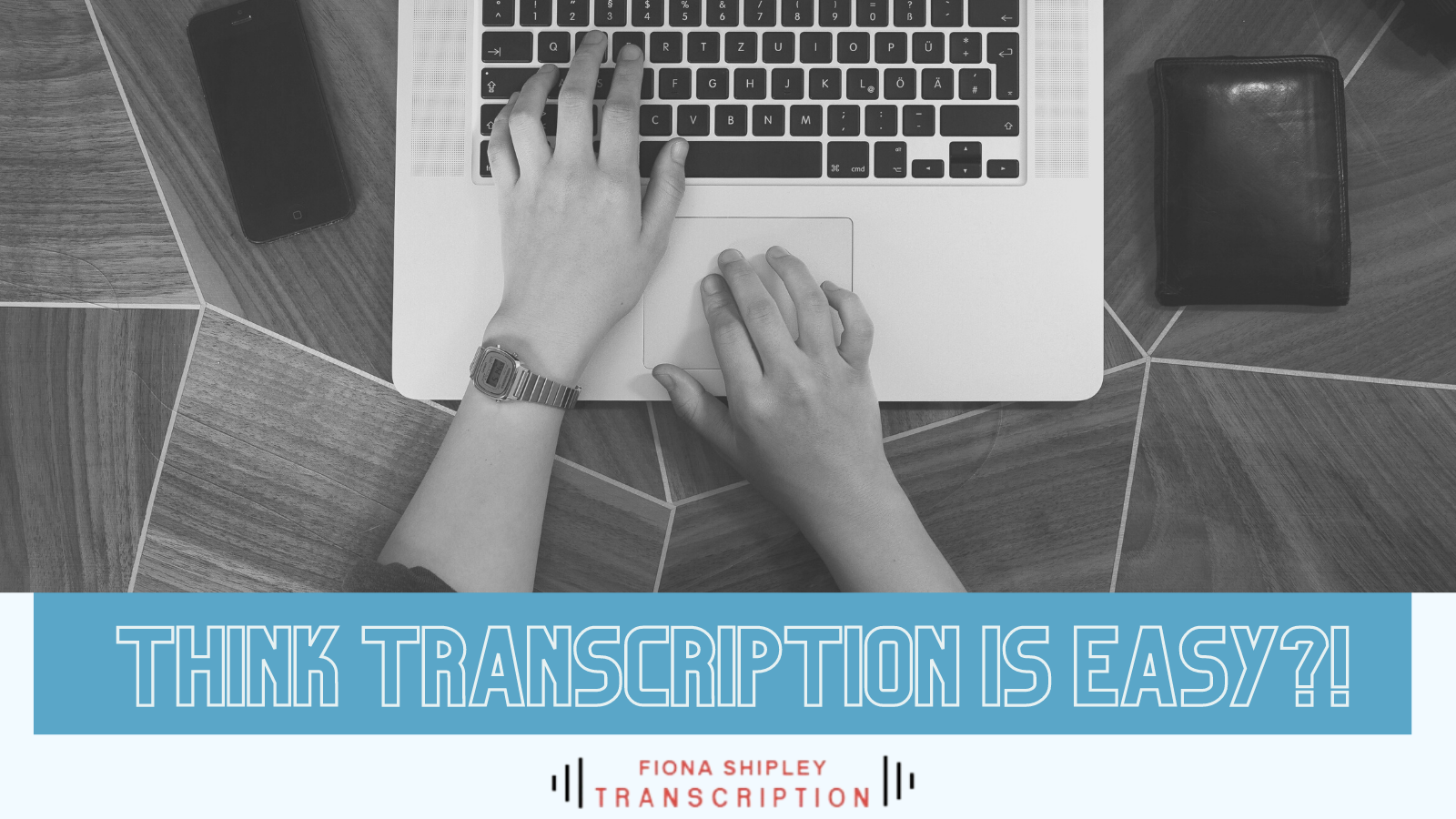The other day I came across an article within which a comment about transcription really resonated with me.
“Transcription is the process of producing a valid written record of an interview: would that it were so simple,” wrote Bill Graham (2005, p. 121).
Transcription is easy right?!
Wrong!
On the face of it, producing a written record of what’s been said may seem pretty simple.
But it’s worth remembering that transcript accuracy and quality – especially within the context of interview-based qualitative research – is absolutely essential if the data is to be accepted as accurate and the study valid. And with so many factors to bring together to achieve a quality end result…
…there’s no “easy” when it comes to transcription accuracy!
It takes time. It takes a skilled approach. And it takes understanding.
Ensuring the end product is a professional one is why our clients return to us time after time.
We’re often asked to produce a transcript that is a word-for-word or verbatim record of the dialogue that occurred within an interview. This means that every element of the spoken words of both the interviewer and the interviewee are reproduced in the interview transcripts exactly as they were spoken – these include sentences that aren’t properly completed, when the speaker corrects themselves by altering their word choice, or when there are sentence structure problems. If a client requests it, we can also include any stuttering, pauses, changes in volume or emphasis to convey meaning. This is a true verbatim transcript.
When words are omitted, or any colloquialisms, accented speech and dialects aren’t properly reflected then the meaning behind what’s been said can end up becoming distorted. When this happens, the end product runs the risk of no longer being a truly accurate transcript!
The need for specialist industry knowledge
When this level of accuracy is paired with the specialist industry knowledge that many of our transcribers have developed thanks to years of experience, a quality transcript is born. And this is what enables FSTL to deliver the exceptionally high standard our clients rightly expect.
When a transcriber isn’t an industry specialist and lacks adequate knowledge of any specific industry terms, there’s a much greater risk of misinterpretation, and simply getting things wrong.
This is of particular concern in the medical transcription arena. The range of medical terms involved in this sector is extensive, and it’s easy to see how a transcriber without the right experience could misinterpret some of the words used. Medical transcribers should never just rely on guesswork, they need to have a keen awareness of what the medical terms are so that they can provide an accurate transcription.
Isn’t AI transcription good enough?
While there have been some significant advances in the quality of the work produced by artificial intelligence, the end product from machine learning isn’t quite there yet on the accuracy front. Understanding dialects, intonation, grammar & punctuation and even gestures are extremely challenging for AI. We certainly feel there is no comparison to a transcript produced by humans!
The bottom line is…
Producing a quality transcript that accurately reflects the content of an interview isn’t easy. It takes specialist skills and understanding which certainly, for the time being, can only be achieved by the human ear. To book in for our quality transcription service please email alex@fionashipley.com.

